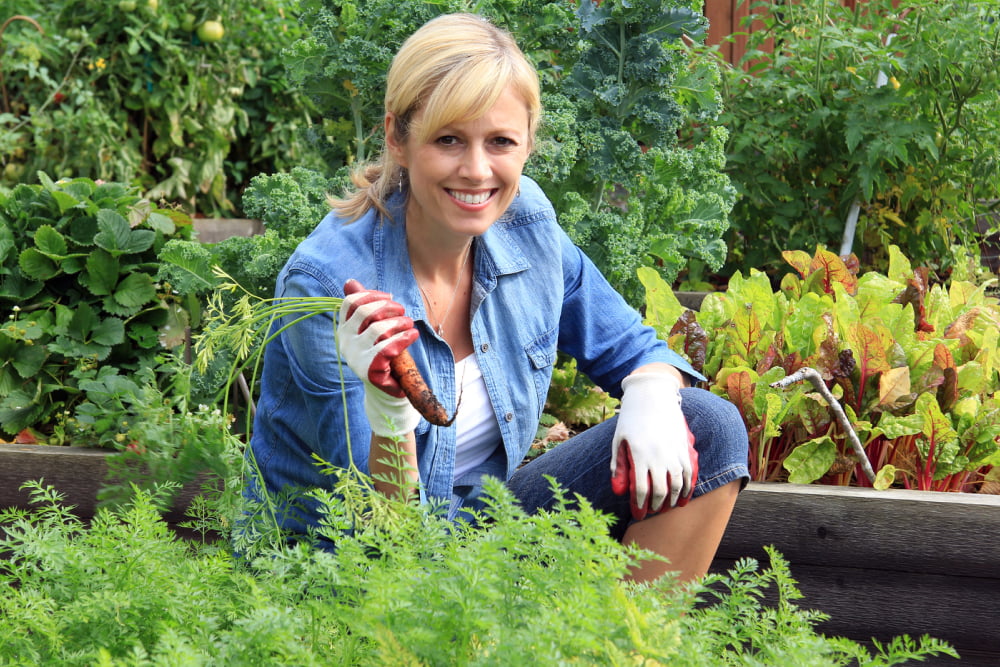14 simple gardening tricks one should know

Tending to a garden is a task that rewards one with a sense of joy and contentment and keeps them connected to nature. However, to get the said reward, one must put in a lot of care and attention. Besides the hard work, a few simple tips and tricks can make the gardening experience more leisurely and fruitful. Here are 14 tips every gardener must learn to get a bountiful garden.
Assessing the location properly
To begin growing a garden, one must first study the location and the plot properly. The basic factors to assess about the location include the type of soil it has, the amount of sunlight it gets, and the kind of weather it experiences throughout the year. Different plants have different sunlight and soil requirements, so one must assess the sun exposure and soil quality in the selected garden area and then choose the plant varieties based on that information.
Looking through the USDA hardiness zones
After assessing the location, it is advisable to go through the USDA’s hardiness zone guide. This helps the gardeners understand their location better and choose plants best suited for their region’s climate. Referring to the guide before choosing plants will ensure that one does not invest in plants that cannot thrive in their area.
Having a water source nearby
Having a water source near the garden not only saves time but also ensures that the plants can regularly receive the moisture they need. For convenience, one can consider installing a hose near their garden. It would allow them to efficiently water their garden without the hassle of carrying heavy watering cans. This practical addition can make a significant difference in maintaining the garden’s health.
Utilizing containers for appropriate plants
Certain plants can grow in containers – one does not necessarily need to plant these in the garden lawns. These plants include herbs, vegetables, decorative flowers, and berries, among others. Containers are versatile and ideal for growing plants that thrive in controlled conditions. Moreover, this also saves space on the garden lawn, which one can use for other plants.
Planting the trees first for open areas
When growing a garden in an open area, it is advisable to plant the trees before the smaller plants. This is because trees require more space to spread their roots and branches. By planting trees first, one can ensure they have ample room to grow and develop other plants on the field without overcrowding it. Moreover, trees can be great additions to gardens as they provide a sense of permanence.
Utilizing the fall leaves
The leaves that plants and trees shed during the fall season can be utilized for the benefit of the garden. By collecting, chopping, and composting these leaves, one can create an organic mulch for their garden. This organic mulch helps the plants conserve moisture. It also helps the garden by suppressing weeds and enriching the soil with minerals, enhancing its fertility.
Using the right kind of compost
Selecting the appropriate compost is essential for a garden. To ensure that plants stay healthy, one must opt for well-rotted compost with a curing process of at least six months. Using fresh manure high in nitrogen is not advisable, as it can potentially harm the plants and may even contain pathogens.
Using spices as anti-fungal agents
When tending gardens, it is vital to ensure that fungal diseases don’t damage the plants. For this, one can harness the antifungal properties of everyday spices such as cinnamon, cloves, and turmeric. Sprinkling these spices on the topsoil acts as a natural shield against common fungal diseases and safeguards the garden.
Utilizing leftover coffee grounds
Instead of throwing away the leftover coffee grounds and tea grounds, one can utilize them in the garden. These grounds are rich in nitrogen, magnesium, and potassium, highly beneficial to plants.
Moreover, their acidic nature is also beneficial to some plants that thrive in soil with lower pH levels, such as rhododendrons and blueberries, among others.
Using eggshells
Gardeners can also utilize eggshells instead of throwing them away. Eggshells, when crushed and added to the garden soil, provide a calcium boost that helps the plants strengthen their roots. The eggshells also help keep away certain pests, such as slugs and snails, effectively safeguarding the plants. By incorporating eggshells into gardening practices, one can not only enhance soil health but also help create a thriving and protected garden ecosystem.
Recycle used soda bottles
Recycling used soda bottles as mini greenhouses is a brilliant eco-friendly gardening strategy. These improvised greenhouses protect delicate plants from adverse weather conditions and extend the growing season by creating a controlled microclimate. Moreover, by recycling these bottles, one not only maximizes their utility but also makes a positive environmental impact by reducing plastic waste.
Storing the seeds for the right time
Gardeners can also save money and guarantee a constant supply of their preferred plants by practicing seed storage. When adequately preserved in cool and dry environments, seeds can maintain their vitality for future planting seasons.
Using companion planting
It is a gardening technique where specific plants are strategically placed to maximize each other’s growth and protect the other against pests. This harmonious planting arrangement promotes a mutually beneficial environment in the garden. By partnering certain crops together, one can deter harmful insects and enhance nutrient uptake of the plants, reducing the need for chemical pesticides.
Taking extra care of trees and shrubs when approaching winter
With the onset of colder temperatures, safeguarding trees and shrubs from the harsh winter conditions is crucial. One can do this by pruning away dead or diseased branches, providing ample mulch to the roots, and providing ample water.
Gardening is a practice that requires patience, as one needs to give time for the plants to flourish. Since gardens require time to mature, the best gardens are well-planned and maintained for years.
















